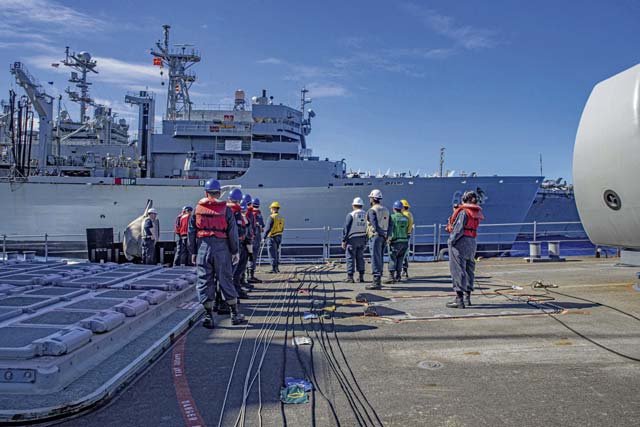
Investing in the supply chain is vitally important for the Defense Department and for national security, said the undersecretary of defense for acquisition and sustainment.
William LaPlante delivered a keynote today during Defense News Conference 2022.
“What I’m worried about are the firm-fixed-price contracts, which are most of the contracts most suppliers to primes or anybody else or with the government. … If you’re in an FFP contract that was signed in 2020, it’s got to suck when it’s 2022 with an inflation rate of 10 percent. That’s what I’m worried about,” he said, adding that he’s particularly concerned about small suppliers who could more easily go under.
The department will be putting out additional guidance shortly to give more flexibility for contracting officers to deal with the inevitable supply chain effects of inflation, he said.
LaPlante said DOD shut down the Stinger missile production line in 2008; the production of High Mobility Artillery Rocket System was shuttered between 2013 and 2017; and the Tomahawk missile production line was barely active.
Then suddenly, Ukraine needed those weapons, he said.
“If you put yourself in a CEO’s shoes and say, ‘wait a second year; I’ll build this gleaming new production facility waiting for the contracts,’ and it’s 2025,” he said. “And you say, ‘you know what, that HIMARS thing that was yesterday; we’re stopping.’”
The department signs multiyear contracts for ships and airplanes but not for munitions, he said. “We need to do it [for munitions], because that’ll stabilize the supply chain. That’ll send a signal to industry to say they’re in it for the long haul, and we can make the commitment.”
The department is working with Congress to try to get a fund that will keep munition production lines open and running so that when a foreign military sales case comes along, such as for Taiwan, the munitions will be available.
U.S. taxpayers need to be comfortable with supply lines producing things that the U.S. may never use but may be needed in places like Taiwan or Ukraine, he said.
LaPlante also mentioned that investments need to be made for building redundancy as a backup in case problems occur with a supplier, adding that the department has taken steps in that direction.


